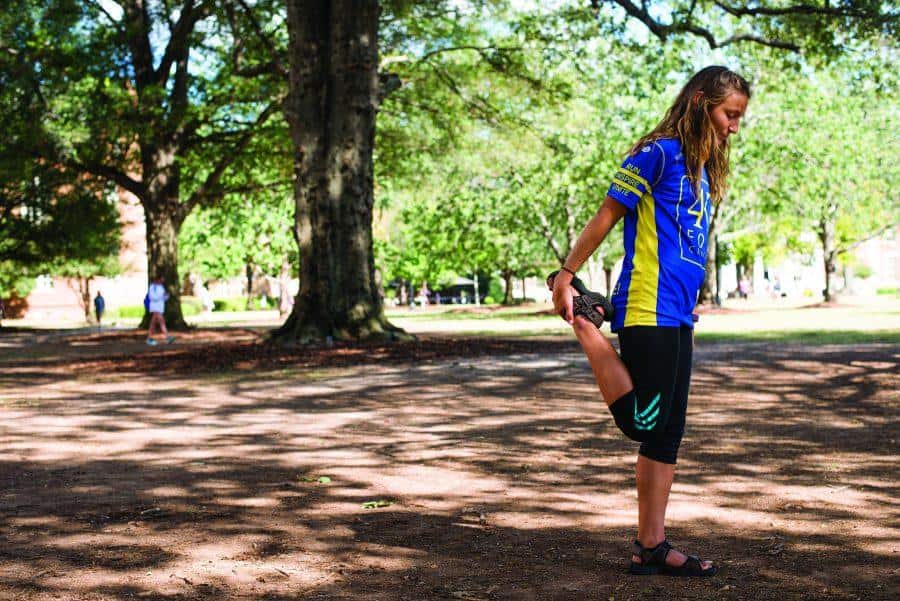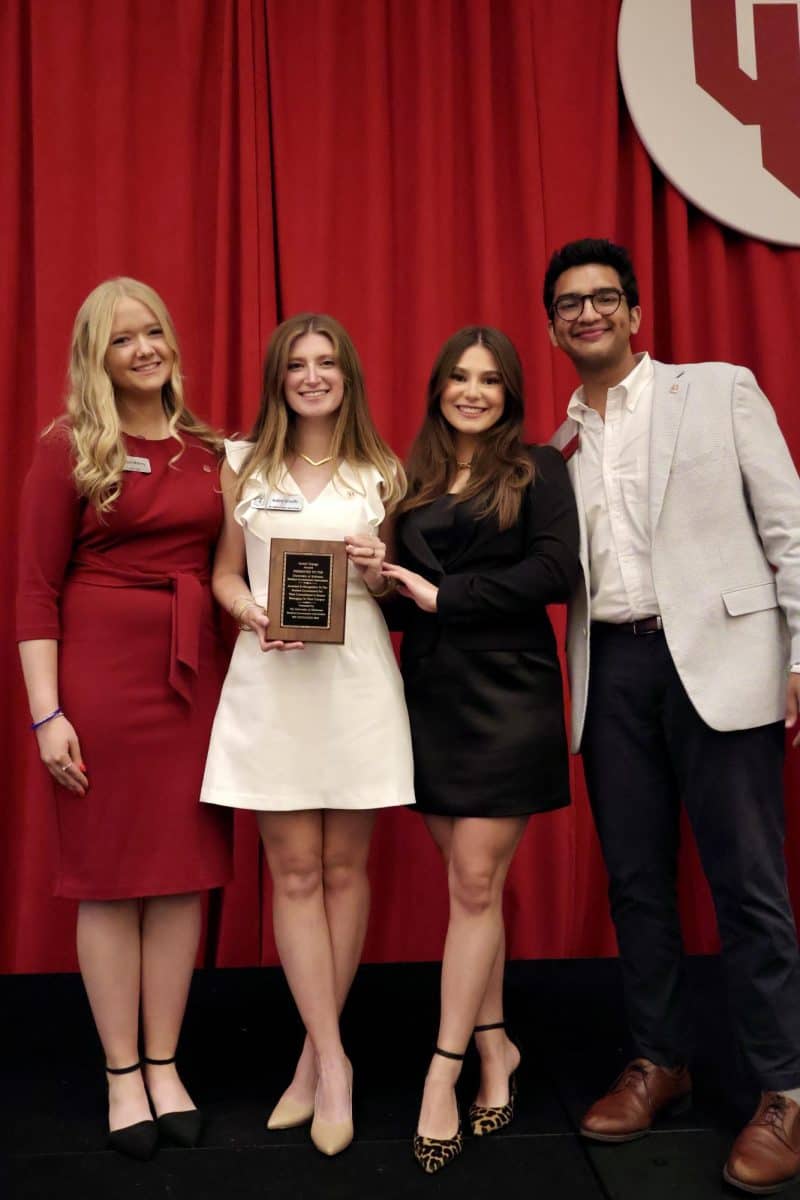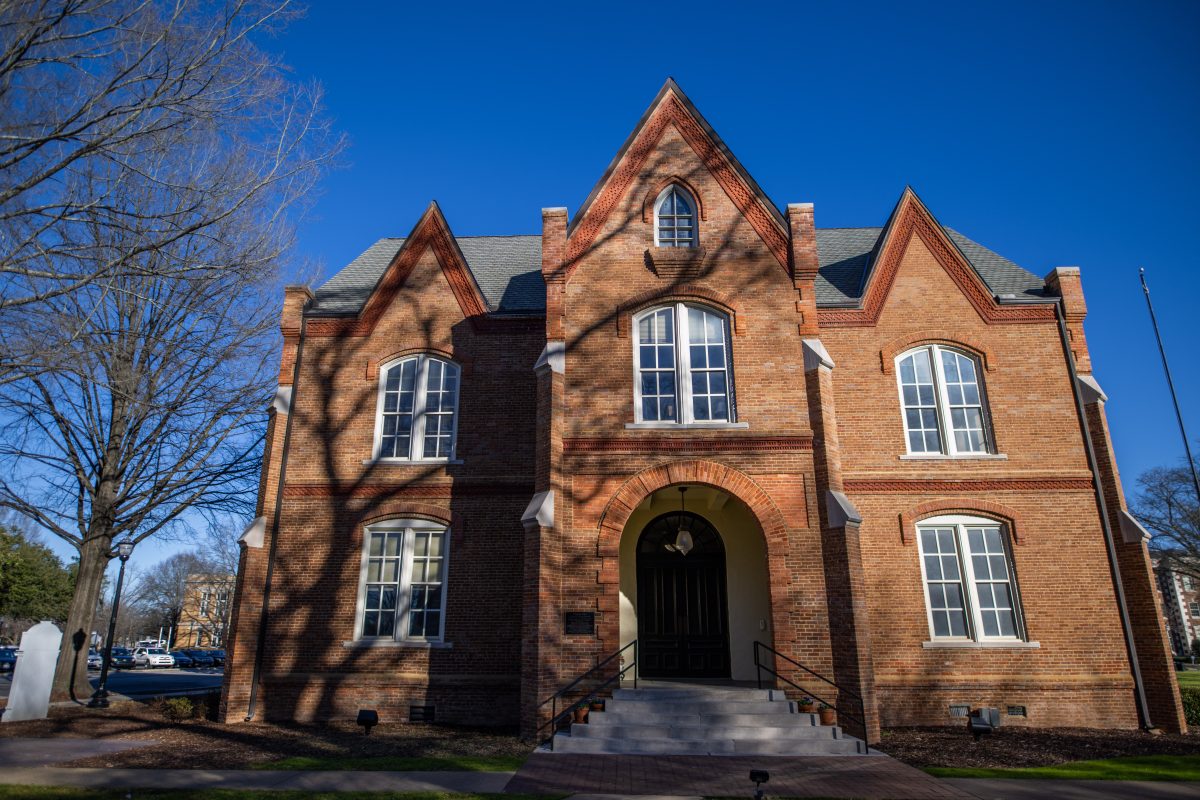Most people would think that Forrest Gump was the only UA graduate to run across the country. But that was before this summer, when one UA senior tied up her laces and just kept going, running clear to the ocean.
But for this one student, she wasn’t running “for no particular reason.”
Abby Rentschler ran for her grandfather.
“I was running for my grandpa, who had melanoma for 17 years but did not tell anybody about it until the last three,” Rentschler said. “My grandparents’ resilience was an inspiration to me.”
Rentschler, a senior at the University and president of Run UA, has enjoyed the exhilaration of running her entire life. This summer she found a new thrill when an Instagram advertisement popped up on her feed that featured a 4K sponsored by the Ulman Cancer Fund. Most people can finish a typical 4K in under a half hour, but this was no normal 4K. For this 4K, the “K” doesn’t represent kilometers, it represents 1,000 – miles that is.
The Ulman Cancer Fund for Young Adults is an organization committed towards support of those diagnosed with cancer aged from 15 to 36 years old, and they were looking for participants to run cross-country in their annual 4K for Cancer event from San Francisco to New York.
“We envision a world where no young adult faces cancer alone,” the Ulman website reads. “We change lives by creating a community of support for young adults and their loved ones impacted by cancer.”
Rentschler applied for the opportunity later that night, unaware of the level of exhaustion and intrigue that would follow.
Before acceptance into the 4K for Cancer program, a participant must raise $4,500 for the cause. Once the money is raised and proper travel and health preparations taken care of, the participant is ready for the 49-day journey across the country.
The event kicked off in San Francisco on June 18, where they began by running across the Golden Gate Bridge. Rentschler had 28 people on her team, all paired up with a partner who they would split the running with. Although there were three biking groups sponsored for this 4K, Rentschler chose one of the two running groups, which meant she and her partner had to run a combined average of 8-14 miles every day. Though advertised as a 4,000 mile run, the run itself was actually closer to 5,000, totaling around 4,800 miles.
The 49-day trek had its share of routines. Rentschler said they usually woke around 4:30 a.m., and one of the first things they would do is what is called a “dedication circle,” where the participants either explained who they were running for or were educated about someone they could be motivated to run for.
“The hardest part of the 4K was not the running, but finding motivation when you are tired,” Rentschler said. “I wanted to put my health to good use for others.”
After the 6 a.m. multiple-mile run, breaks and meals, Rentschler and her team had the option of either catching up on sleep or blogging about the events of that day. She said she usually chose to blog 1-2 hours, chronicling the happenings of her days both on and off the course. She would then go to bed, averaging about three hours of sleep before her day would begin all over again.
Between California and New York there are 10 rest days, where the team stops in certain cities and participates in other efforts. For example, in Omaha, Nebraska, the team took a rest day to spend time meeting cancer patients and painting a mural at a new cancer center.
Rentschler said that some of the rest days turned out to be more exhausting than the running, but that they contributed to making the experience enjoyable. Sometimes they would go hiking on their “rest” days and it was during these periods of exhaustion where many of the bonds on the trip were formed.
“Abby was an incredible teammate and one I know I will stay close with through life,” said 4K for Cancer teammate Tori Marcavage. “I will never forget one of my toughest runs through the Big Horn mountains she was the one by my side encouraging me to put one foot in front of the other. She honestly was one of the people that helped me get through my toughest days.
Some other cities sites involved on the journey across the country included Green Bay, Wisconsin; Yellowstone National Park; Cleveland, Ohio; Boise, Idaho and Rentschler’s hometown of Saline, Michigan.
In order to maximize funding towards their cause, all of their housing and meals were free, provided to them by churches and YMCAs.
The company of strangers on the road was an added welcome. Along the path, Rentschler was shocked at the level of hospitality they received from total strangers. They would go into a gas station and come out with free food given to them by the owner after learning about their cause.
“You would be surprised at how willing people are to help,” Rentschler said. “We would tell people about what we were doing and why we were running and they would open up to us.”
Throughout the course of the trip, the five teams combined to raise a total of $800,000 towards the Ulman Cancer Fund. The welcoming ceremony in New York saw the participants running through the finish line after completing the last leg of their trip – a 26-mile marathon – with their family and friends waiting.
Although the event ended on August 5, Rentschler said she is still exhausted.
Although she was the only one from The University of Alabama in her team, and the home states of her friends vary from Pennsylvania to California, the team still keeps in touch. The members of her 4K cross-country tour all plan on meeting up in Washington, D.C. to attend yet another running event, the Marine Corps Marathon.
To learn more about 4K for Cancer, visit 4kforcancer.org.
To read Rentschler’s blog, visit http://abby4k.blogspot.com/.







